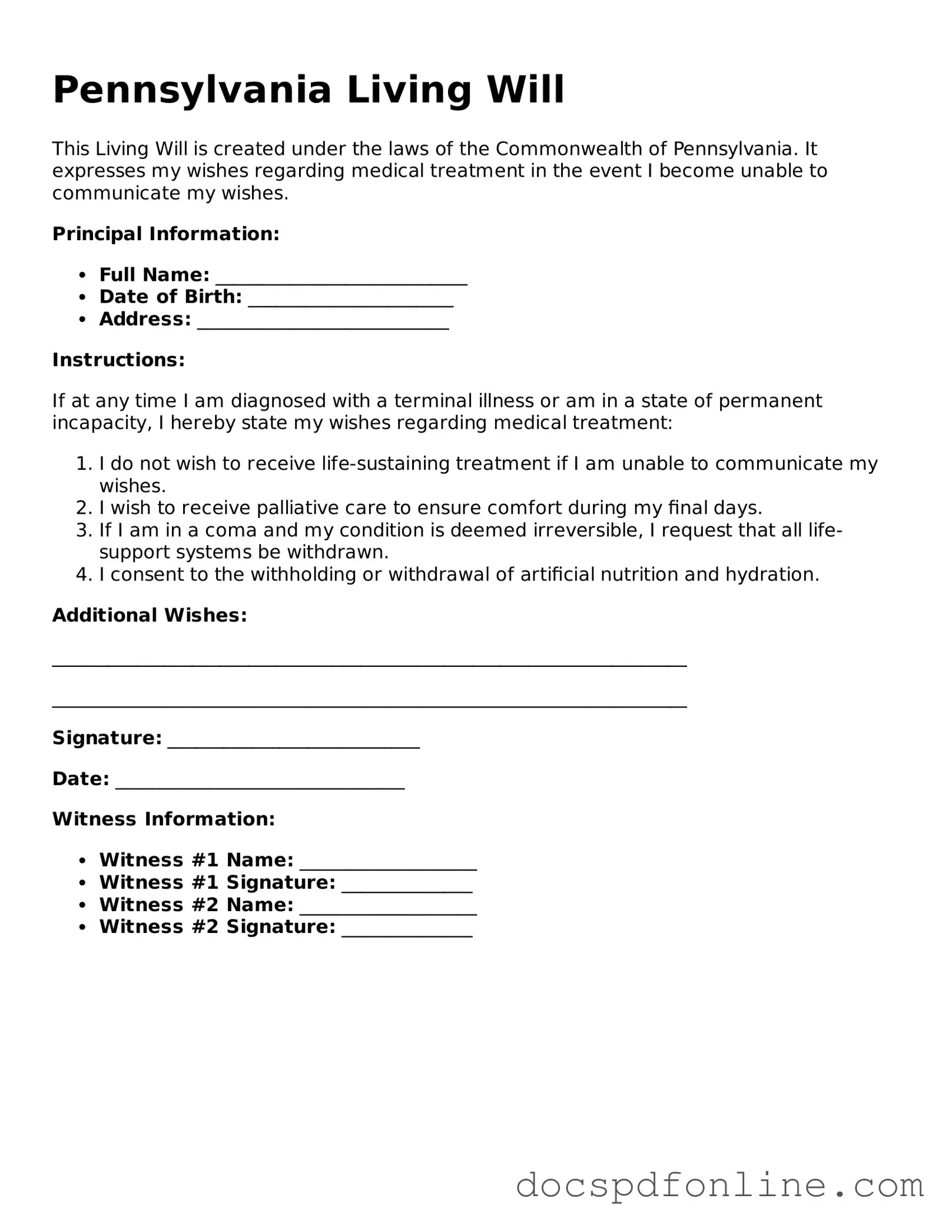Legal Living Will Template for Pennsylvania
A Pennsylvania Living Will is a legal document that allows individuals to outline their preferences for medical treatment in the event they become unable to communicate their wishes. This important form ensures that your healthcare decisions are respected, reflecting your values and desires during critical moments. By preparing a Living Will, you can provide peace of mind for both yourself and your loved ones.
Launch Editor Now

Legal Living Will Template for Pennsylvania
Launch Editor Now
Save time — finish this form fast
Finish Living Will online — edit, save, download made easy.
Launch Editor Now
or
↓ PDF File
